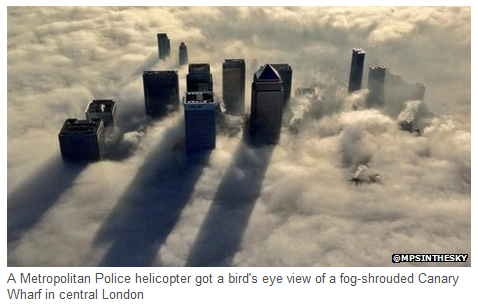Appealing to my love of the right angle.
Wednesday 29 January 2014
Thursday 23 January 2014
On a University Campus
I was walking across a university campus last year musing on how academic standards had declined so seamlessly that few who cared had noticed when something happened to reinforce my lamentations. As I was coming to the end of my musings, I overheard two students talking about work they were about to hand it. This work consisted of an essay plan. Not an essay per se but just the plan for an essay: an essay that would never be written. It seems that essays are too much to ask. Now the assessment is based upon plans for things imagined and not upon real things. Even if one could prove that it was an equally difficult task (something I very much doubt), the task is still a lesser one.
It reminded me of the time in an examiners' meeting when a change in the course content (the word syllabus is no longer used) was mentioned. The change was proposed because students in recent years had been unable to cope with what was required of them. So content with which they could cope - content less taxing and easier to do - was to be substituted in it place. What was worse, this meeting was being attended by four or five external examiners from other institutions: those changed with ensuring academic standards are met and maintained nationally. None of them seemed to be conscerned by this 'dumbing-down'. So one was left wondering what things were like back at their institutions. Out of 120 or so universities in Britain, no university from the top 70 was represented at that meeting, let alone the top 10 or 20 - where the older, more traditional institutions still reside and stand somewhat apart from all the rest.
Once all universities were devoted to higher learning. (In the top universities that is still the case, I should add.) Previously, I have noted on this blog that universities were for thinking and learning. The 'higher' was implicit. Over time, the 'higher' seems to have faded from view leaving us with just 'learning'. But even that is no longer really the case. Now it is all about teaching: 'university teaching'. (That phrase was never even used when I was an undergraduate.) But it is even worse. It is not what is taught but how it is taught that seems to matter most nowadays. A lot of university teachers are spending time and effort on devising new ways of teaching - new ways of keeping students 'engaged' - rather than finding the most up to date ideas to teach. Students mustn't find things boring. In the age of so much information, academics should be those devoted to finding and interpreting what is relevant and worth knowing. Instead the emphasis is on presentation and style; there are no prizes for content.
Friday 17 January 2014
Fog
I remember, when I was a boy growing up in London, how there would be foggy days when we could hardly see to the other side of the road. Those days are largely gone but every so often there is a foggy day which now makes the news. The picture below was taken recently and shows something about which we were never aware when I was young: that the fog had a vertical limit. It seemed to us at ground level that the fog went on indefinitely - quite literally into the clouds. That seems not to be the case.
As I've noticed whenever I've taken off in a plane from a rainy airport, above the clouds the sun is always shining.
As I've noticed whenever I've taken off in a plane from a rainy airport, above the clouds the sun is always shining.
Saturday 11 January 2014
From the sublime...
...to this!
Winterlandschaft ('Sort of') - Caspar David Friedrich (1811)
Having searched for Winterlandschaft (by its English title I must add), Google seems to have got wise to my interests. During a completely unconnected search not long after, Google suggested the image above. It obiterates the drama and intrigue of the original somewhat but having given you the original, I thought it allowable to lighten the load with this amusement.
Sunday 5 January 2014
To Start A New Year
Here's something to ponder over at the start of a new year. Caspar David Friedrich (1774-1840) was a German Romantic painter of the late eighteenth and early nineteenth centuries. His landscape paintings has a often have a dark brooding atmosphere and the more one looks the more one finds lying hidden in plain sight or blended-in within the shadows. What does this painting suggest? Is this a bleak mid-winter scene or is there something of spring that somehow inverts its whole meaning?
Subscribe to:
Posts (Atom)



